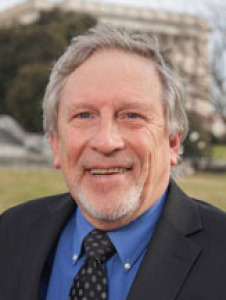Several major ag states, led by Illinois, are losing seats in the U.S House as a result of the 2020 Census.
In addition to Illinois, California, Michigan, New York, Ohio, Pennsylvania, and West Virginia (below) also will lose one seat each. Minnesota just missed losing a seat, the Census Bureau says.
Texas will gain two seats, and Colorado, Florida, Montana, North Carolina, and Oregon will gain one seat.
Keep in mind: The Census results are good news for rural Minnesota lawmakers like first-term GOP Rep. Michelle Fischbach, who might have seen their districts combined had the state lost a seat.
The Midwest and Northeast grew 3.1% and 4.1% respectively over the decade, while the West grew by 9.2% and the South by 10.2%.
SCOTUS hears biofuel case today
The Supreme Court is hearing oral arguments today in a long-running battle over the EPA’s authority to give refiners waivers from the ethanol usage mandates.
The court is considering a 10th U.S. Circuit Court of Appeals ruling that said a small refinery exemption couldn’t be extended once it had lapsed.
A coalition that includes the Renewable Fuels Association, American Coalition for Ethanol, the National Corn Growers Association, and the National Farmers Union backs the 10th Circuit’s position.
But Chet Thompson, president and CEO of the American Fuel and Petrochemical Manufacturers, says a “plain reading of the law makes clear” that Congress intended the waiver authority to be “a lasting safety net” for refiners.
Don’t miss: The second season of the Agri-Pulse Deep Dive podcast is here, and the first installment looks at the history of biofuels policy and the Renewable Fuel Standard.
Upper Midwest dairy groups weigh in on marketing order reform
The National Milk Producers Federation opened the door Friday for a change in the way milk is priced under federal milk marketing orders, and now several other organizations want in on the action. Today, the Dairy Business Association, Edge Dairy Farmer Cooperative, the Minnesota Milk Producers Association and others plan to announce their own proposal for FMMO reform, a plan they call “Class III Plus.” They say it would be a “long-term fix to several existing milk pricing problems – not just correcting issues of the past 24 months.”
Among other things, the plan would tie Class 1 (fluid) pricing to Class III (cheese) pricing, along with an adjuster, which they say would “reduce the need for Class III plants to de-pool” and the negative impact that has on prices.
The groups said they had been studying several different aspects of the orders for years but had not planned to request a hearing prior to NMPF’s action on Friday.
Take note: Agriculture Secretary Tom Vilsack told the North American Agricultural Journalists on Monday that given the division in the industry, it was too soon to make a change in the pricing formula.
“I know that within the dairy industry there are conversations, and I think those conversations need to mature a bit more before anybody makes a decision that there's going to be a significant change,” he said.
Vilsack restructuring research staffing
Vilsack says he isn’t going to move two USDA research agencies back to the nation’s capital from Kansas City, but he is looking to divide new agency personnel between the two regions.
The Trump administration moved the Economic Research Service and the National Institute of Food and Agriculture to Kansas City in 2019.
Vilsack told the ag journalists that there is “an aggressive effort underway to refill” vacant research positions and that the new hires will fill “a mix” of positions in Kansas City and the Washington area.
Don’t miss: Read our report here on Vilsack defending President Joe Biden against claims that he wants to slash meat consumption.
WTO spurs members to speed up ag trade reform
Members of the World Trade Organization only have until November to come up with an agreement on how to improve international ag trade for the 12th Ministerial Conference, but it’s unclear if the diverse group of nations can coalesce around substantial reform.
Gloria Peralta, the head of ag talks at the WTO, suggested Monday that a concrete proposal to increase transparency by nations would suffice, but that idea got some pushback. “Our credibility at the WTO depends on delivering meaningful outcomes for agriculture at MC12,” the New Zealand representative said.
Some countries insist that nothing less than substantial reform to cut trade-distorting subsidies for farmers, especially for cotton producers, is necessary, according to Geneva officials.
The United States, which has sharply increased domestic farm supports in recent years, says sticking to an agreement that improves transparency, especially on import safeguards, is a more realistic goal, the officials said.
Biden to engage Kenya on trade, renewable energy
The Biden administration is reaching out to Kenya to “discuss future cooperation to promote democracy and expand trade,” according to s State Department spokesman.
While it won’t be a resumption of the free trade agreement talks the Trump administration began, the effort may give some optimism to lawmakers and farm groups hoping that a trade deal with the country would lead to expanded exports to the African continent.
Secretary of State Antony Blinken will be holding virtual meetings with Kenya’s president as well as officials from “Kenyan-based renewable energy companies” today, the spokesman said. Blinken will also meet virtually with Nigeria’s president and foreign minister.
He said it. “The attrition that occurred during the previous administration has created a lot of stress on people, and that’s why we intend to … get our workforce back up to the place where they can do the work that people expect them to do.” - Ag Secretary Tom Vilsack, telling ag journalists he is concerned about burnout among ERS and NIFA researchers in the wake of the 2019 agency relocations and the resulting staffing shortages.
Questions? Tips? Contact Philip Brasher at philip@agri-pulse.com





